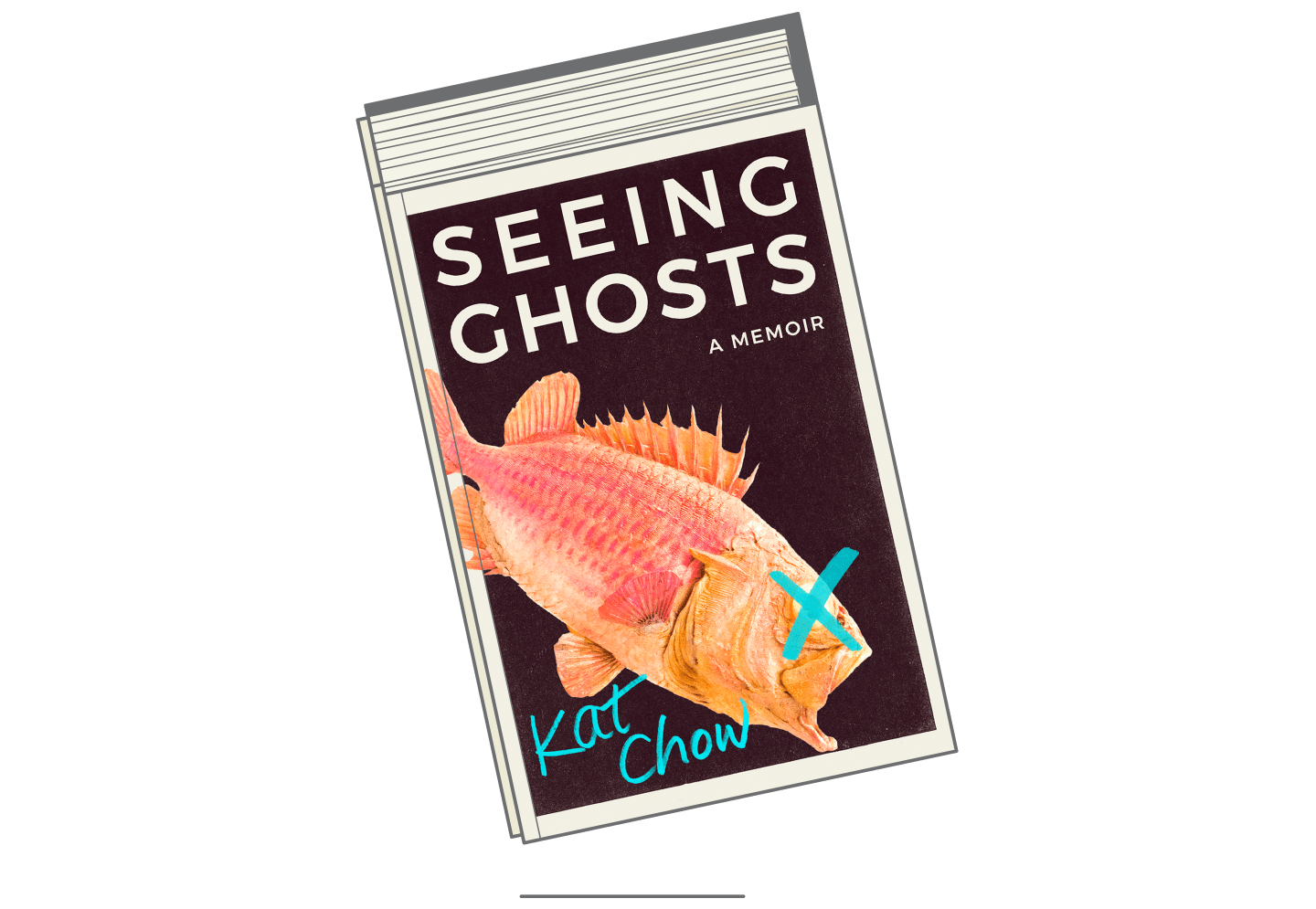Understanding success and grief across the generational divide

One of the main ideas that propelled me as I wrote Seeing Ghosts revolves around what we owe: the debts that we have to our parents and the family members who came before, and the price we pay in order to participate in this world—among many other things.
When I began working on the chapter that’s partially excerpted here, I wanted to write about my parents’ marriage and careers, and how they each channeled their ambitions and had to adapt to each other’s realities. So much of this book is about the ways my parents tried to make lives for themselves and their children in America’s capitalistic system after fleeing Communism in China. I wanted to infuse this chapter with my own childhood memory of my mother’s work and the ways that perspective can change and grow more complicated over the years.
Immediately, I knew I needed to write about the Travelers Tower in Hartford, where she worked briefly, and where peregrine falcons had nested in 1997. (Hartford is nicknamed the “insurance capital of the world,” and my mother worked for major health insurance companies for much of her career, despite not feeling she could afford a health insurance plan that likely would have best benefited her.) As a kid, I was enraptured by these falcons—they seemed so powerful, and I loved how fast they could fly. But as an adult, I loved these falcons for what they symbolized about determination and endurance.
Below is an excerpt from my new memoir, Seeing Ghosts (Grand Central Publishing).
As a child, I couldn’t understand what an enormous feat the reappearance of peregrines at the Travelers Tower signified for environmentalists. As an adult, it’s birds like that swooping between glass and steel that stays with me. It was humans and the use of pesticides that poisoned and nearly eradicated peregrines from the East Coast. It was humans who helped bring them back, building roosts on the skyscrapers. The falcons nesting among the tall buildings strikes me at first as unnatural, though perhaps this is a matter of adaptation and survival. The word I’m looking for is assimilation.
I wonder now if my mother’s career change was in response to my father’s—a realization that she would need to provide for our family. Was this the path that my mother had originally wanted to pursue years earlier when she had first arrived in the U.S., but felt she couldn’t because of her father’s wishes? Was it that she hadn’t realized she’d wanted to study programming until then? Was she satisfied with this change? I suppose I am wondering what it means to be satisfied.
My father often talks of survival—do whatever is necessary to succeed—but where in this idea does satisfaction factor?
Mommy, I am asking about your happiness—and yet, I am only able to reach as far as “satisfied.”

The first time my father tried to reinvent his career, it was to work at his restaurant.
I can picture my father before this, seated at a cubicle that would never have his name on it. He wore a pair of khakis from the juniors section and a button-up shirt that my mother ironed.
He cycled through different industries every handful of years, often taking short-term contracts that didn’t come with health insurance. He was an engineer, restauranteur, programmer, financial consultant, and property manager.
Until my sisters reached elementary school, my father worked at companies that manufactured energy. At one of the firms, which produced steam power, he and some coworkers who were also from China were assigned a project that they found a more efficient way to complete. The manager learned that they had developed their own method.
Don’t do this the Chinese way, the manager told them, though nobody had brought up China or that they were Chinese. We’re in America.
My father ignored him. He continued on with the project how he saw fit.
What did you think of that, though? I ask him one evening on the phone. I had wondered, broadly, about the types of discrimination he had faced over the years. At the time, did you find this to be racist?
He speaks quickly, but evades the question.
Oh, there was just always little things like that, he says. People always say things like that. You know.
He launches into a story about you. At work—he forgets which job—your coworkers told raucous jokes. You were one of the few women on the team, and one of fewer immigrants. My father couldn’t remember what those jokes were about, specifically, but it’s easy to imagine. Your coworkers, most of them white, assumed you were laughing with them.
You better be careful, you know, you said. Your lips crimped. I’m a double minority. A woman and a Chinese.
Then, you added, your smile broadening: Watch out, I could go to HR.
They froze, uncertain if now they were the ones who had missed the joke.
When Daddy relays this story, he pronounces mi-nor-i-ty carefully, and laughs. Never mind that women aren’t technically minorities in the U.S. But that you identified as such, tells me you likely dealt with many similar situations over the years. You defused your discomfort by swiveling it around.
I am surprised when he so easily supplies these anecdotes. Surprised again when he launches into another, about a neighbor who complained about my sisters swimming at a private pool club as guests instead of paying members. Surprised again that all these years later, he remembers the name of this neighbor and the name of the pool club. I cannot recall any times from my childhood where my family spoke openly about the little moments of denigration and racism that we gathered. Distance provides safety, and allows us to call these decades-old moments what they were. Now, the speed with which he recalls this makes me want to know what other stories he chooses not to share.
Excerpted from Seeing Ghosts: A Memoir by Kat Chow. Copyright © 2021 by Kat Chow. Reprinted with permission of Grand Central Publishing. All rights reserved.
Dive into stories from Fortune’s print edition:
- Crypto traders anonymous: A new addiction takes hold for many as cryptocurrency goes mainstream
- How Toyota kept making cars when the chips were down
- Ethereum risks it all on going green
- NFTy 50: The most influential builders, creatives, and influencers in the NFT world
- The war to charge your electric car is powering up
Subscribe to Fortune Daily to get essential business stories straight to your inbox each morning.